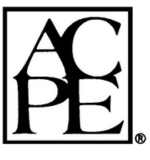HOPA Practice Management: Operationalizing Bispecific Therapies: From Engaging T-cells to Care Teams
Join us for live, virtual learning on Tuesday, November 12, 2024, at 1-2:30 p.m. Central Time and earn 1.5 ACPE credit hours. Learn more below or register now.
Learning Objectives
- Describe significant efficacy and safety endpoints for bispecific T-cell engager therapies that are currently FDA-approved
- Propose strategies to enhance communication, coordination, and collaboration among healthcare systems, especially in transitions of care from inpatient to outpatient and community settings
- Develop guidelines for bispecific T-cell engager toxicity management and prevention
- Prepare education for dissemination to medical staff in the academic and community setting
- Illustrate potential strategies to mitigate financial challenges and unique operational requirements
- Employ patient selection criteria to optimize bispecific T-cell engager administration
UAN# 0465-0000-24-118-L04-P
About this Course
Bispecific T-cell engagers are a new class of immunotherapeutics with efficacy in hematologic and solid malignancies. These agents share similar toxicities with other T-cell engaging therapies, including cytokine release syndrome and immune effector cell-associated neurotoxicity.
With ever-increasing utilization of bispecific T-cell engagers, seeking collaboration across care settings - from community-based/rural clinical practices to academic medical centers - will be key. Optimization of bispecific T-cell engager administration requires a proactive approach across these teams to address transitions of care, prevention and management of reactions and other toxicities (including fine-tuning premedications), education of medical staff, financial and operational challenges (such as formulary management), and patient selection.
During this LIVE, virtual session, we will review updates associated with Bispecific T-cell engager therapies and provide tools to implement best practices.
Authors

Emilie Aschenbrenner is an oncology board-certified clinical pharmacist and Hematology Coordinator for pharmacy at Froedtert and the Medical College of Wisconsin. She currently specializes in Bone Marrow Transplant and Cellular Therapy, and is involved in institutional quality improvement initiatives, guidelines, and FACT accreditation.

Grace Baek is a Clinical Hematology/Oncology Pharmacist at Fred Hutchinson Cancer Center & UW Medicine in Seattle, Washington, and serves as a Clinical Instructor at the University School of Pharmacy. Baek specializes in hematology with an emphasis on lymphoid and plasma cell malignancies.

Megan May is a Clinical Oncology Pharmacy Specialist at Baptist Health Lexington's Cancer Center in Lexington, Kentucky. In addition to direct patient care, Dr. May plays an active role in the education of pharmacy students and residents. She has been involved at the national level with a number of professional organizations on various committees and positions over the years.

Anna Rivard is the lead oncology pharmacist at Billings Clinic Cancer Center in Billings, Montana. She is a current board member of the Oncology Pharmacy Network Pacific Northwest Chapter, and her areas of interest include immunotherapy, lymphomas, myeloma, leukemias, and practice management.
Application Course for Pharmacists

HOPA is accredited by the Accreditation Council for Pharmacy Education as a provider of continuing pharmacy education.
To claim ACPE Credits the learner must complete all required activities, including the pre- and post-tests, and course evaluation. CE's will be reported within 1-2 weeks of completion of the credit claim activity.
Technology requirements: HOPA Learn requires a modern web browser (Internet Explorer 7+, Mozilla Firefox, Apple Safari, Google Chrome) and the ability to listen to audio with the content.